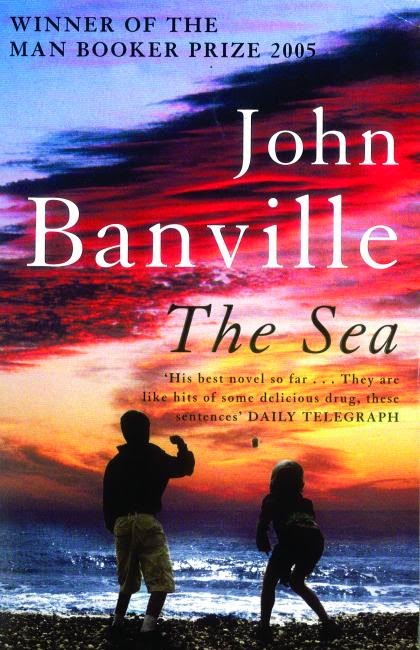Claim to Fame : John Banville's books have won various awards. 'The Sea' is the 2005 Man Booker prize winner while his novel 'The Book Of Evidence' was shortlisted for the 1989 Booker prize.
 |
| The Sea |
This is simply beautiful writing!
An
incident. It rocks your world, shakes it, and torments you. More so when you
have been a silent observer. The author, John Banville doesn’t present a major
story with a gut wrenching plot. This novel is more a tale of feelings; it is a
rendition of a widower’s life, of what is left of it, riding deep into the
waves of his emotions, facing the tidal highs and lows of his past and present
life, the turmoil in the depths of his loneliness. Max, the central character
of this novel is deprived of the company of his only companion, his wife,
snatched away from him by a fatal disease. He misses her and like a buzzing
insect attracted to the lamp in a room only to be struck dead by the rotating blades
of the fan, he comes to rest and live his life of solitude in the only place he
has a strong memory of, the house of the Cedars by the sea.
A
belonging to the sea is maybe more a matter of penance, than a matter of
belonging for Max, of what has been taken away than what has been given. The
author gleefully flirts; plays hide and seek traversing the lengths of Max’s
past and present. His recollection of the Grace family from his childhood days
and the impact they created on his psyche becomes an integral inseparable part
of his memories. The insouciant behavior of the entire Grace family, right from
the flirting mother, the carefree and unconcerned father, the impish and
reckless son to the brattish daughter becomes incomprehensible for him but
still he hangs along to create a so called social bearing on his character, to
feel and experience acceptance.
The
dying of his wife Anna, the death of her, the sole companion of his journey
through his adult life during which he was with her, throws him into the throes
and pangs of his past and he ends up living more there than here, in the
present.
The
narrative is like a child’s weaving of a string of beads from sundry things
that he finds here and there, some of shape, others shapeless, lacking of a
strict arrangement or like the seemingly meaningless endless helter-skelter
running of a deer, deviating frequently from the flow. The author makes you
wade through numerous rivers of the protagonist’s life before merging them in
the sea.
No
wonder a large population of book lovers hates the Booker winners like this
one. You read most of the novel and wonder, “Why am I putting myself through
this sad saga of this old man and his miseries when it is not half as
interesting as I thought it to be”. But then, life is not always an engrossing
plot or a clever story. This novel, its words, the thoughts are like a
heartfelt beautifully written poem. Some of the sentences amaze you with their
depth. It is like a melancholy song that you would like to hum, the one that
strikes and spurs a feeling deep inside – that is the power of such brilliant
writing!
Some beautiful lines from
the book:
- Perhaps all of life is no more than a long preparation for the leaving of it.
- In those endless October nights, lying side by side in the darkness, toppled statues of ourselves, we sought escape from an intolerable present in the only tense possible, the past.
- She was standing between me and the window, talking to another woman, and for a moment my eye had difficulty fixing a depth of focus, since it seemed that, of the two of them, Anna, being so much the bigger, must be much nearer to me than the one to whom she was speaking.
My rating : * * * * * * * * * * - 8/10
 |
| John Banville |
No comments:
Post a Comment
Thank you or your comments.